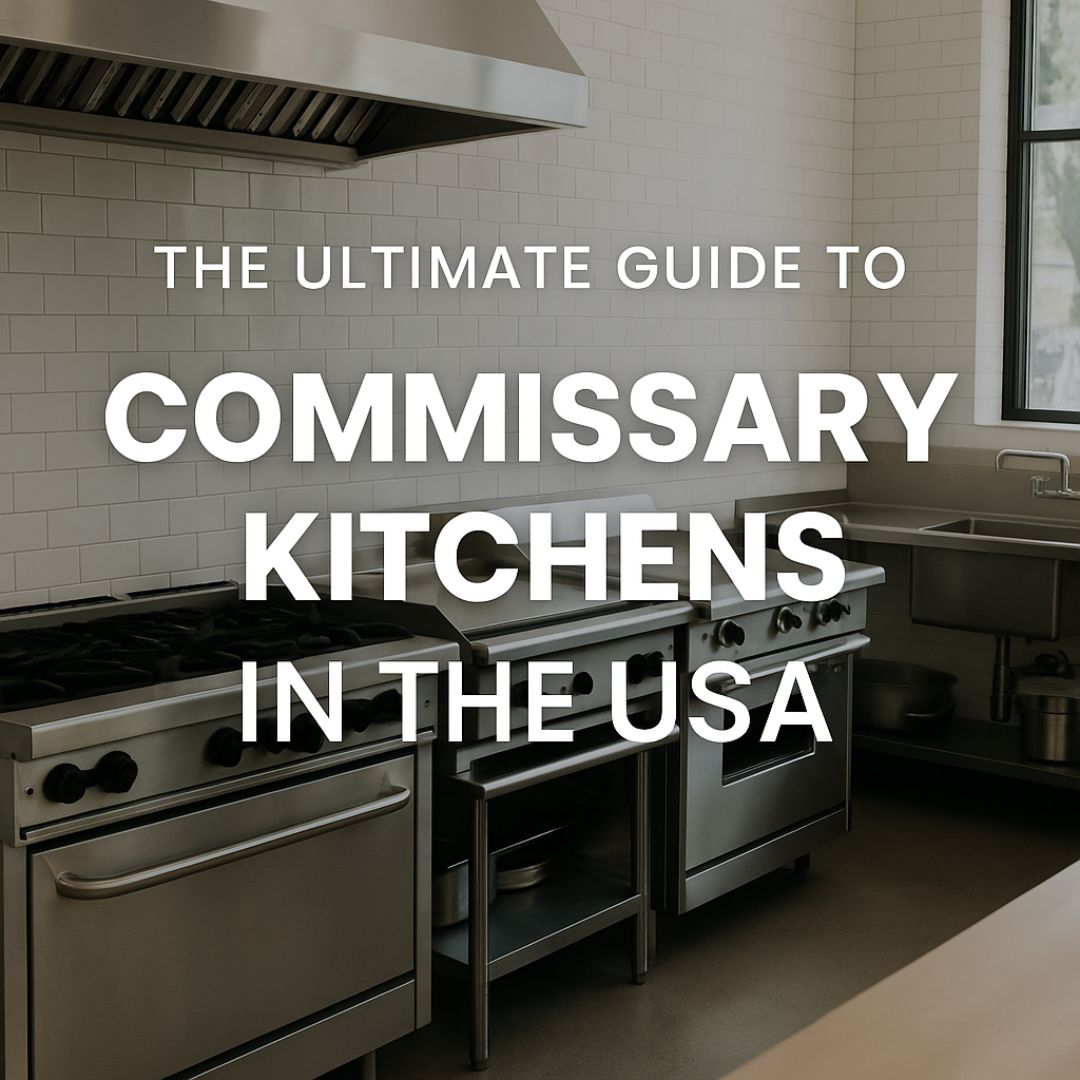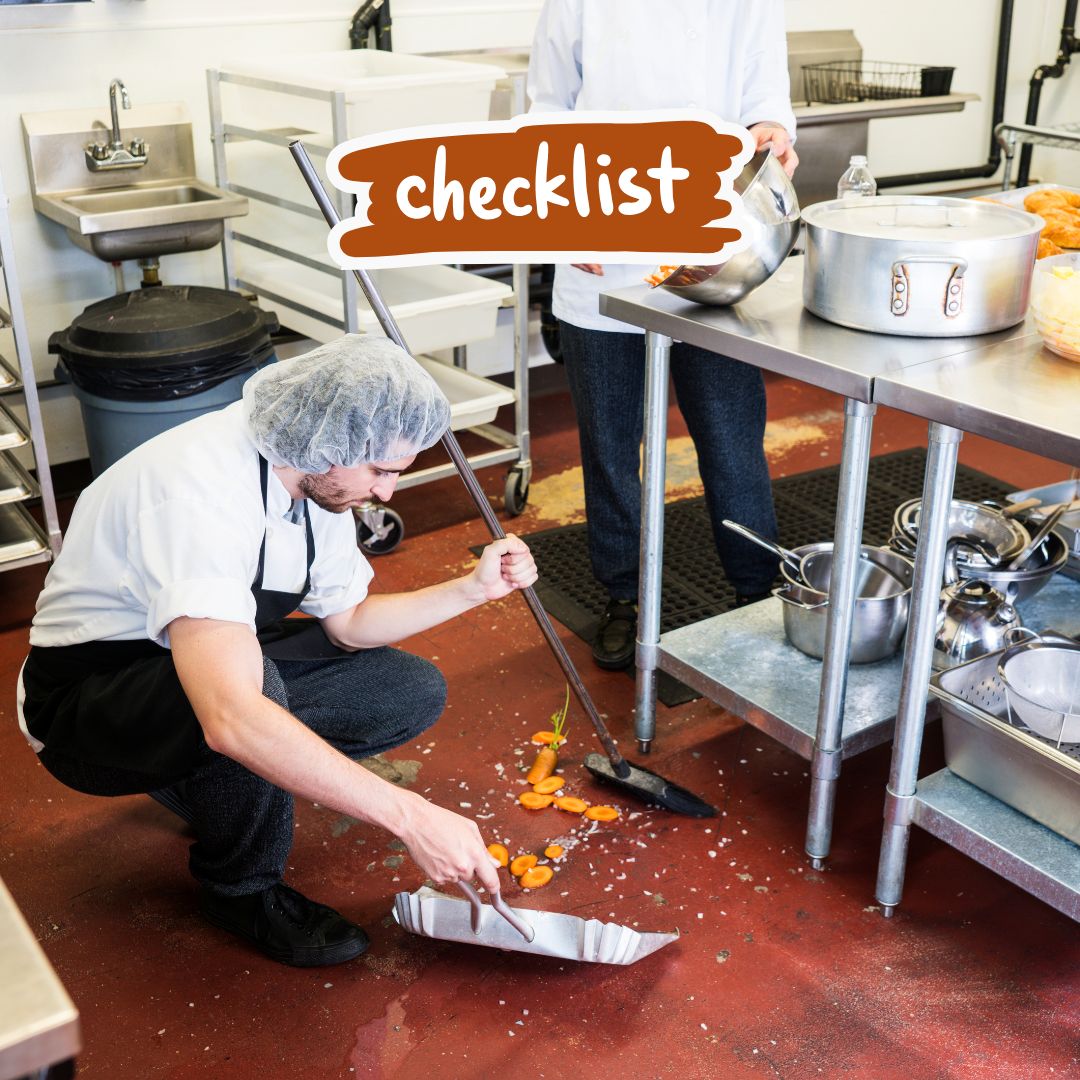After diving deep into extensive research across the web, analyzing reports from health departments, interviewing kitchen operators, reading reviews from small business owners, and comparing dozens of real-world commissary models, we’ve compiled the most detailed and practical guide for food entrepreneurs in the U.S. interested in using commissary kitchens.
Whether you’re a food truck owner in Austin, a cloud kitchen startup in New York, or a home baker in California, this guide is built on real information gathered across all 50 states. Here’s what I’ve found through my research and late-night scrolls across forums, Reddit threads, and even health code PDFs!
What Is a Commissary Kitchen?
A commissary kitchen is a licensed commercial facility that food entrepreneurs can rent to prepare, cook, and store food. It allows them to legally operate without owning their own kitchen. From food trucks to meal prep services, commissary kitchens offer flexibility and compliance.
Types of Commissary Kitchens (Shared, Private, Incubator)
During my research, I found three major types:
- Shared kitchens: Multiple vendors use the space on a schedule.
- Private kitchens: Reserved for one vendor with dedicated equipment.
- Incubator kitchens: Provide training and mentorship, perfect for startups.
Who Uses Commissary Kitchens?
The user base is more diverse than you’d expect:
- Food trucks (they need a base kitchen)
- Caterers and personal chefs
- Cloud kitchens and ghost restaurants
- Meal-prep and diet plan services
- Home bakers going legit
- Pop-up restaurants
Legal Requirements to Use One
To operate legally, you must:
- Get a food handler’s permit
- Register your business with the state
- Have insurance (general liability and product liability)
- Pass local health inspections
How Much Does It Cost to Rent a Commissary Kitchen?
Prices vary by location and setup:
- Hourly: $15 – $45/hr
- Monthly: $600 – $2000/month for shared, higher for private
- Add-ons: Cold storage, lockers, waste removal, etc.
Pros and Cons of Commissary Kitchens
Pros:
- Low overhead
- No long-term lease
- Flexibility for scaling
Cons:
- Schedule limitations in shared kitchens
- High demand in urban areas
- Not always customized for your workflow
How to Choose the Right Commissary Kitchen
Based on testimonials and review sites, the ideal kitchen offers:
- Cleanliness + safety rating
- Easy access and parking
- Helpful staff or manager
- Cold/dry storage
- Prep space that matches your food type
Best Cities in the USA for Commissary Kitchens
Top cities with active commissary culture:
- Los Angeles
- Chicago
- Houston
- Atlanta
- Miami
- Portland (very startup-friendly!)
Where to Find Commissary Kitchens Near You
My research shows these websites are most helpful:
- The Kitchen Door
- CulinaryIncubator.com
- Local Facebook groups for food entrepreneurs
What Equipment Is Typically Included?
Most commissary kitchens offer:
- Stainless steel tables
- Commercial ovens and burners
- Fryers
- Industrial dishwashers
- Walk-in refrigerators/freezers
- Sinks and prep counters
How to Design Your Own Commissary Kitchen (If You’re Opening One)
If you’re building a kitchen:
- Prioritize workflow design: receiving → prep → cook → package → dispatch
- Separate dry, cold, and dish zones
- Offer add-on lockers, cameras, cleaning service
Key Things to Check Before Signing a Contract
- Lease terms
- Health inspection status
- Liability responsibility
- Hours of access
- Additional cleaning fees
Popular Commissary Chains or Franchises in the USA
Examples I found with strong reputations:
- PREP Atlanta
- Kitchen United (cloud kitchen model)
- Chef’s Commissary (Florida)
- Pilotworks (NYC, now closed but case study worthy)
Renting vs Building a Commissary Kitchen
Renting: Faster, lower cost, great for MVP stage Building: More control, long-term gain, high upfront cost
Health & Safety Standards You Need to Meet
- Food contact surface protocols
- Temp logs for hot/cold foods
- Cleaning schedule log
- Pest control logs
- Fire safety compliance
Commissary Kitchen Business Model (If You Want to Run One)
Revenue streams:
- Hourly or monthly rental
- Cold/dry storage fee
- Delivery coordination fee
- Membership models
Can You Sleep in a Commissary Kitchen? (Spoiler: No)
Local laws strictly prohibit using kitchen space for sleeping or non-food activities. Always check your city’s codes.
What Makes a Good Commissary Kitchen Partner?
From Reddit threads:
- Responsive owner
- Transparent pricing
- Flexible policies
- Maintenance and cleaning consistency
Best Practices for Using a Shared Kitchen
- Clean your area every time
- Label everything (name, date, product)
- Respect time slots
- Keep noise minimal if others are working
What to Bring with You to a Shared Kitchen
- Your tools (knives, spatulas, mixing bowls)
- Packaging supplies
- Ingredients and spices
- Gloves and sanitizers
Common Mistakes New Users Make
- Not reading lease terms carefully
- Not checking equipment in advance
- Poor ingredient storage
- No backup power plan
Understanding Commissary Kitchen Insurance Needs
- General liability insurance
- Product liability
- Worker’s comp if you have staff
- Commercial auto (if delivery involved)
Can a Commissary Kitchen Help You Scale?
Yes, massively! A chef in Chicago used one to test 5 different menus before launching a food truck and eventually opening a dine-in.
Real-Life Case Studies
Case 1: Houston-based meal prep startup scaled to 400 orders/week using shared commissary. Case 2: Home baker in LA transitioned from home kitchen to full-time commercial orders via incubator.
How to List Your Commissary on Google Maps and Local SEO
- Register Google Business Profile
- Add high-quality photos
- Collect reviews from vendors
- Add keywords: “shared commercial kitchen [city]”
Add-On Services That Can Increase Your Revenue
- Label printing
- Packaging station
- Co-branding space
- Social media support for vendors
Understanding the Demand for Halal, Vegan, and Specialty Commissaries
Research shows a huge gap in certified halal and gluten-free commissary options. If you’re targeting a niche, ensure compliance.
Virtual Tours and Why They Help Your Kitchen Stand Out
Adding a 360° virtual tour increases booking trust and online visibility.
How to Pitch Your Commissary to Food Startups
Focus on:
- Low-cost entry
- Flexibility
- Health department compliance
- Community/networking benefits
Future Trends in Commissary Kitchens (2025–2030)
- Smart kitchen tech: IOT ovens, digital logs
- Specialized zones for cloud kitchens
- Sustainability focus: compostable waste stations, greywater reuse
- AI-based scheduling and slot optimization
Final Thoughts
This guide is not just theory. It’s the result of late-night research, real business case studies, government food safety docs, and insights from actual entrepreneurs using these spaces.
If you found this valuable, don’t forget to follow QasimDiary.com for more hospitality, food business, and entrepreneurial insights.
Let’s keep building the food future — one prep station at a time.





